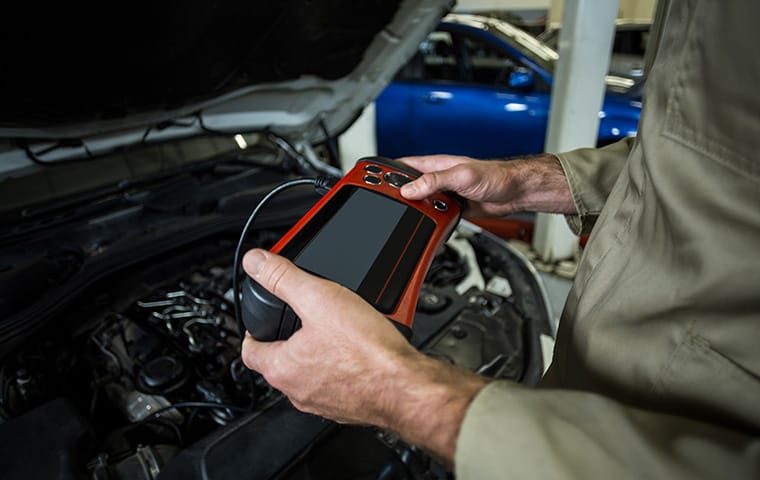If you’ve been driving for any length of time, it’s probably happened to you at least once. You pull up to a red light and as you’re waiting for the green, you notice your engine is racing. Typically, engines idle at about 600-800 rpm. Older engines may go up to 1200 rpm or more while warming up. But if the engine is revving up while idling, even after it’s sufficiently warmed up, you might have a problem.

High idle speeds waste fuel, cause extra wear and tear on your engine, and can be unsafe as well. If your foot should slip off the brake as the engine revs, it could cause your vehicle to lurch forward, putting other drivers and even pedestrians at risk. It’s best to address the problem immediately to avoid an accident.
What Causes High Idle Speeds?
There are a few problems that can be the cause if your car is idling high. Some are easy to fix yourself, others will require specialized tools or expertise. Here are some of the most common reasons for an engine to be idling high.
The most common problem is a faulty fuse. In modern vehicles, engine idle speed is most often controlled by the idle air control (IAC) motor. This can be impacted by bad fuses in many different electronic systems in your car.
Next, your high idling could be caused by a computer malfunction. If all of your vehicle’s fuses are still good, the computer associated with any of these electronic elements could be at fault. If your powertrain control computer is misreading idle speeds, this can cause a high idling malfunction.
When your car’s throttle is malfunctioning, this can cause your car to stall or idle high. Often this is a result of dirt buildup in the air intake. Other times it can be a problem with a cracked intake tube.
If the IAC motor’s vacuum port is leaking, this can be another cause of high engine idling. The leak could be sourced at the seal, or more often, in one of the attached hoses. An overheating engine will often idle higher than normal, so be sure to check your engine temperature gauge. And a bad alternator can also cause fast idling in your engine.

What Can I Do About It?
Some of the above problems are easy enough for almost anyone to fix. DIYers can easily change filters and sometimes replace fuses or other problem parts. Other causes should be handled by a trained mechanic. Some require special equipment to even attempt a repair.
One important thing to remember if you’re trying to troubleshoot your idling problem is to always test it with accessories such as air conditioning and the radio turned off. In some vehicles, these systems can cause the engine to rev slightly in order to get more power to the electronics.
Keep your vehicles in top running condition with predictive maintenance alerts from Azuga. Contact us today to learn more.








